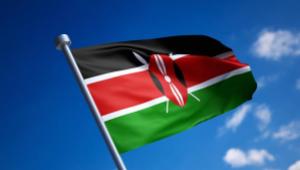This is the conclusion of a damning report by UK MPs, released today, which criticised the international aid sector for its “abject failure” in effectively dealing with the issue of its employees committing sexual exploitation – six months after the scandal was highlighted.
Chair of the UK’s International Development Committee Stephen Twigg said: “Many things have changed [in the last six months] with the aid sector, Charity Commission [UK charity regulator] and DfID [UK Department for International Development] taking steps to respond to the crisis.
“One thing has not: the abject failure of the international aid sector to get to grips with this issue, leaving victims at the mercy of those who seek to use power to abuse others. This must be tackled.”
The committee accused the aid sector of “superficial” action to tackle the issue of abuse, consisting mainly of “reputation management in the face of media reports” rather than bringing about “meaningful change”.
Twigg added: “Victims and whistleblowers must not end up feeling penalised for speaking out.”
The report said: “Donors, and in particular the Department for International Development, must provide funds to support the implementation of reporting mechanisms as well as a broader programme of initiatives to increase understanding of rights and tackle sexual and gender-based violence more widely.”
The report found that the main obstacle to improving the reporting of abuse incidents – so making it more difficult to deal with and prevent the issue - was a lack of funding.
The committee launched an inquiry into sexual exploitation after it was revealed that Oxfam covered up claims that its staff had used sex workers while working in Haiti after the earthquake in 2010. Further misconduct within Save the Children and UN agencies was later uncovered.
The UK MPs called for a “zero-tolerance culture” on sexual exploitation and said any report of abuse should be investigated. They called for more transparency and accountability within the sector and for an independent aid ombudsman to be set up.
Twigg said that the aid sector was first made aware of concerns in 2002, when a report by the UN agency for refugees, UNHCR, and Save the Children, documented cases of abuse.
He added: “This is 16 years of failure by the entire international system of governments, the UN and the aid sector.
“I find it hard to escape the conclusion that organisations have put their reputations first.”
The latest UK committee report criticised the United Nations for failing to show sustained leadership in tackling abuse and DfID, saying the UK government department “could have done a lot more” since being made aware of allegations in 2002.
IDC member Pauline Latham said there is need for a “deep cultural change” within the international aid sector, starting with the senior leadership.
Caroline Thomson, Oxfam chair of trustees, said today’s report was “incredibly painful reading for me”. “We have made improvements since 2011 but recognise we have further to go,” she said.
Bond, a network organisation for UK charities, said the report was “an important step” towards addressing sexual exploitation in the sector.
UK regulator the Charity Commission said: “We are particularly pleased with the Committee’s focus on the need for a sector-wide approach to reporting.”
Michelle Russell, the Charity Commission’s director of investigations, monitoring and enforcement, said: “We take safeguarding extremely seriously.”
The reported noted Matthew Rycroft, permanent secretary of DfID, told the select committee that the UK is in a position to “withhold funding from any parts of the United Nations that do not match our requirements, either in terms of their reform or of their results”.
Following the Haiti scandal earlier this year, Oxfam agreed not to bid for any new government funding until it reforms.
In 2016-17, Oxfam received more than £31m in funding from the UK government, under its overseas development assistance, which translated to around £13.4bn in 2016 or 0.7% of national income.
In response to the scandal, DfID has established a safeguarding unit and will host an international conference in October where organisations are expected to make commitments on tackling abuse.
Public Finance International has contacted DfID for comment.







